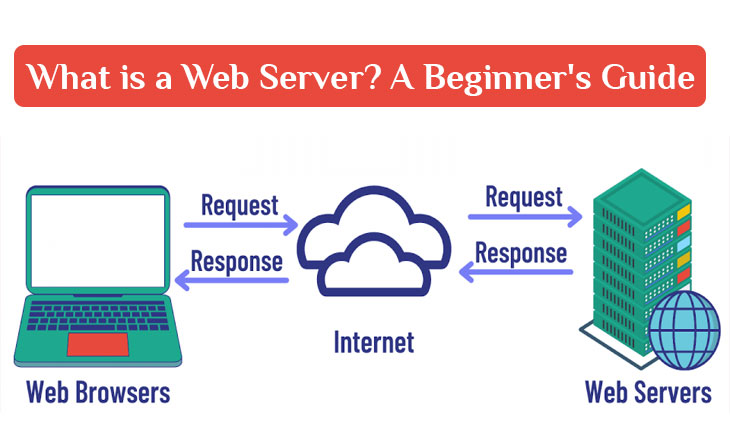If you have ever browsed the internet, you have interacted with a web server. It is an essential component of the World Wide Web that is responsible for serving websites to users across the globe. In simple terms, a web server is a software program that responds to requests from web browsers by delivering web pages and content. In this article, we will delve deeper into the concept of web servers and their types, and their impact on web hosting and search engine optimization.
Types of Web Servers:
There are various types of web servers available in the market, each with its unique features and capabilities. Some of the most commonly used web servers are:
- Apache HTTP Server: It is the most widely used web server globally, powering more than 40% of websites on the internet. It is open-source software that is free to use and easy to configure, making it a popular choice among developers.
- Nginx: It is a high-performance web server that is known for its scalability and low resource consumption. It is often used in conjunction with Apache to handle high-traffic websites.
- Microsoft IIS: It is a web server that is specifically designed for Windows-based systems. It is a commercial product that offers features such as integration with Microsoft technologies like ASP.NET.
- LiteSpeed: It is a commercial web server that offers superior performance and scalability compared to other web servers. It is often used by hosting providers to handle high-traffic websites.
Choosing the Right Web Server:
Choosing the right web server for your website is essential as it can have a significant impact on your website’s performance and search engine optimization (SEO). The factors that you need to consider when choosing a web server are:
- Performance: The web server’s performance is crucial as it directly impacts your website’s loading time. A slow-loading website can negatively affect user experience and search engine rankings. Therefore, you should choose a web server that offers high performance and scalability.
- Compatibility: You need to ensure that the web server is compatible with the technology stack that you are using for your website. For example, if you are using PHP for your website, you should choose a web server that supports PHP.
- Security: Security is a crucial aspect of web hosting, and you need to choose a web server that offers robust security features such as SSL certificates, firewalls, and intrusion detection systems.
- Support: You should choose a web server that offers excellent customer support, as it can help you resolve any issues that you may encounter while hosting your website.
Web Hosting and SEO:
Web hosting plays a crucial role in search engine optimization (SEO) as it affects your website’s loading time and availability. Search engines such as Google prioritize websites that offer a better user experience, and website loading time is a crucial factor in determining user experience. Therefore, you should choose a web hosting provider that offers high performance and uptime guarantees.
Conclusion:
In conclusion, a web server is a critical component of web hosting that is responsible for delivering web pages and content to users across the globe. Choosing the right web server for your website is essential as it can impact your website’s performance, security, and search engine optimization. By considering factors such as performance, compatibility, security, and support, you can choose a web server that best meets your website’s needs.

